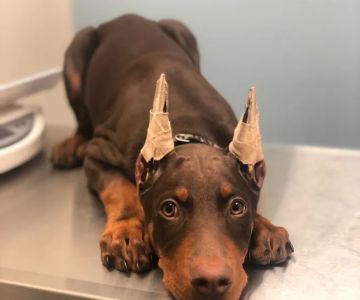1. Can You Be a Veterinarian Without Doing Surgery?
Becoming a veterinarian is often associated with performing surgeries, but what if you’re not inclined to go under the knife? This was a question I had when I first considered a career in veterinary medicine. Growing up with animals, I always had a passion for caring for them, but the idea of performing surgery was something that gave me pause. The good news is that you can absolutely be a veterinarian without doing surgery. While surgery is an important part of veterinary practice, there are many other roles within the field that don’t require going into the operating room.
In this article, I’ll explore different non-surgical paths within the veterinary profession, share my personal experience, and offer insights into what it’s like to work in the veterinary field without performing surgeries. Whether you’re considering a career change or are just curious about the options available, this guide will provide the information you need to understand the various non-surgical roles in veterinary medicine.
2. Veterinary Careers That Don’t Involve Surgery
The first thing I learned when I began exploring veterinary careers is that not all veterinarians are involved in surgery. While some veterinarians are specialized surgeons, others focus on diagnostic work, preventive care, or supporting other veterinary specialists. Here are a few of the rewarding career options that don’t require surgery:
2.1 Veterinary General Practice
As a general practitioner, you can still have a significant impact on animal health without performing surgery. General veterinarians often focus on routine exams, diagnostics, and preventive care. When I shadowed a general practitioner, I saw firsthand how veterinarians work with animals on a daily basis, offering advice on nutrition, vaccinations, and disease prevention. They also perform minor procedures like dental cleanings or administering vaccines. While surgery may occasionally be part of the job, many general practitioners avoid it or refer cases to specialists.
2.2 Veterinary Technicians and Technologists
Veterinary technicians and technologists play an essential role in the care of animals, and while they work closely with veterinarians, they don’t typically perform surgeries themselves. Their duties include assisting with diagnostic procedures, preparing animals for surgery, administering medications, and monitoring animals’ recovery. I was amazed to discover how much veterinary technicians contribute to a practice, as they are often the first line of support for both the animals and their owners.
2.3 Animal Behaviorists
For those who are passionate about understanding animal behavior, becoming an animal behaviorist can be a fulfilling career. Animal behaviorists work with pets and owners to address behavioral issues such as aggression, anxiety, and obedience problems. While this role doesn’t involve performing surgery, it plays a crucial part in enhancing the quality of life for pets and their owners. I spoke with an animal behaviorist who explained how rewarding it is to help pets feel more at ease in their homes, especially when working through challenges like separation anxiety or fear of loud noises.
2.4 Veterinary Pathologists
If you have a keen interest in diagnostics and lab work, veterinary pathology might be the path for you. Veterinary pathologists examine tissue samples and perform post-mortem examinations to help diagnose diseases. While pathology isn’t about performing surgeries, it requires a high level of expertise in understanding animal diseases. I had the chance to chat with a veterinary pathologist who described the satisfaction of being able to provide accurate diagnoses that help improve the care of animals.
2.5 Public Health Veterinarians
Public health veterinarians focus on animal diseases that can affect human populations, working in areas like epidemiology and disease prevention. These veterinarians often work for government agencies or research institutions and help protect public health by identifying and controlling diseases like rabies or zoonotic infections. This role is vital, especially in preventing outbreaks of diseases that could impact both humans and animals. While public health veterinarians don’t perform surgeries, their work is crucial for the safety of both animals and people.
3. Key Skills Needed in Non-Surgical Veterinary Roles
While surgery is a vital aspect of veterinary medicine, it’s far from the only skill that a veterinarian or veterinary professional needs. Here are some important skills I’ve learned are essential in non-surgical veterinary roles:
3.1 Strong Communication Skills
As a veterinarian in a non-surgical role, clear communication is key. Whether you’re discussing treatment plans with pet owners, explaining the results of diagnostic tests, or providing advice on animal behavior, being able to convey information in an understandable and empathetic manner is critical. I’ve found that being able to relate to pet owners and build a rapport with them makes it easier to provide effective care and advice.
3.2 Critical Thinking and Problem-Solving
Even though you may not be performing surgeries, veterinary professionals still need strong critical thinking and problem-solving skills. From diagnosing illnesses to interpreting lab results and recommending treatments, the ability to think critically and make informed decisions is essential. In my own experience, diagnosing the right treatment for an animal’s condition can often be a puzzle, and it requires keen observation and thoughtful analysis to put all the pieces together.
3.3 Compassion and Empathy
Compassion is at the heart of every veterinary role, and non-surgical roles are no exception. Whether you’re comforting a worried pet owner, helping a sick animal feel more comfortable, or working with distressed pets, being empathetic and understanding is essential. I’ve seen how important it is to show kindness and patience, especially when dealing with animals that are in pain or frightened. It’s this compassion that ultimately helps strengthen the bond between veterinarians and pet owners.
3.4 Knowledge of Animal Anatomy and Medicine
Although non-surgical roles don’t involve performing surgeries, having a strong understanding of animal anatomy, diseases, and medications is crucial. I found that the more I learned about animal health, the better I was able to diagnose issues and recommend treatments. For those in roles like veterinary technicians or behaviorists, this knowledge forms the foundation of their ability to help animals live healthier, happier lives.
4. Exploring Non-Surgical Veterinary Careers
If you’re considering a career in veterinary medicine but are unsure about performing surgeries, there are many rewarding options available to you. From diagnostic work to animal behavior and public health, there’s no shortage of meaningful ways to contribute to the well-being of animals. I personally found a deep sense of fulfillment in my work, knowing that I was making a difference in the lives of pets without the need for surgical procedures.
There are plenty of resources and professional networks that can help you explore these roles further. If you’re interested in learning more about the various veterinary career paths that don’t involve surgery, I highly recommend visiting Hidden Brook Veterinary, where you can find expert advice, resources, and information to guide you along your journey. It’s an exciting and diverse field, and there’s a place for every passion and skill set within it.











